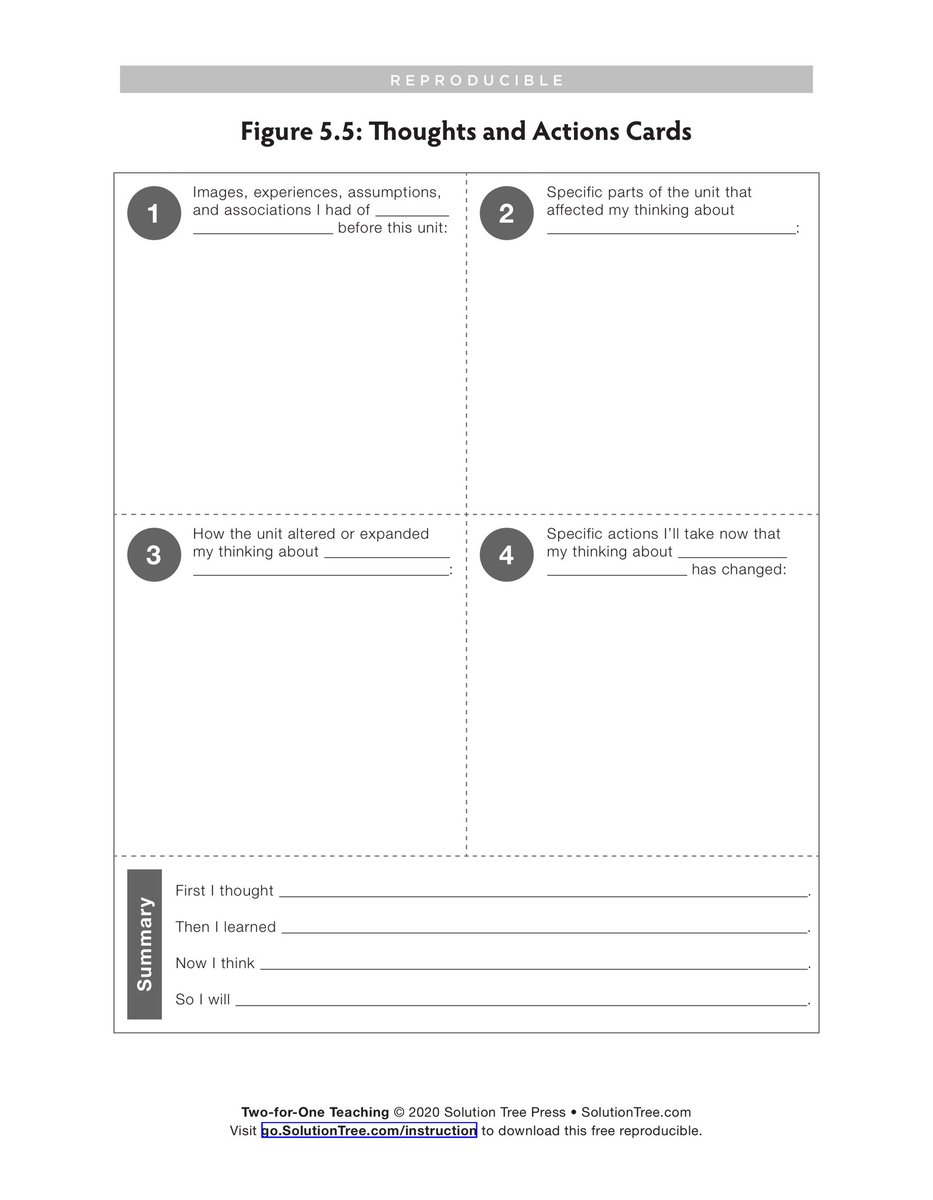
Things to do with independent reading books: 🧵
#NCTE #nctevillage #ILA #engteacher #celchat #engchat #rethinkela #libcollab #edutwitter
#NCTE #nctevillage #ILA #engteacher #celchat #engchat #rethinkela #libcollab #edutwitter
List 10 things the book is about and find 3 more books about each thing. The student now has 30 potential books to read next.
Identify important themes in the course text. Write an essay comparing and contrasting how the theme comes up in the course text, the independent reading book, and your life. Conclude the essay by explaining how this theme is important to you.
Write a “So I Will” essay, using the protocol from #2for1Teaching. 



Find poems, songs, articles, movies, or pieces of art that somehow go with the book. Explain how. Put them in an order and explain the order.
Photocopy facing pages with a part that makes you sad or angry. Turn them into a blackout poem that conveys hope or joy. Explain how the book’s scene and your poem relate to each other.
Adapt a key moment into a graphic vignette that stands on its own.
Name an award after the main character. Write an essay explaining what qualities the award represents, how the character displays those qualities, and why a particular classmate should win that award. #2for1Teaching 

Conduct a bias audit of the book. Write a critique. Propose alternatives.
Identify the most interesting tool or technique the author uses. Experiment with that tool or technique in your next writing project.
Make different kinds of graphs or charts (pie, bar, scatterplot, etc.) depicting different aspects of a character (their values, strengths, growth, emotions, relationships, etc.).
Use the Collaborative Conversations protocol from #2for1Teaching to talk with a classmate about your respective books. Based on what you got out of each book, find a book to read together.
• • •
Missing some Tweet in this thread? You can try to
force a refresh



